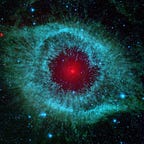What Is A Moon?
The definition of a moon is a celestial body that orbits a planet, a dwarf planet, or other smaller objects. They are also known as natural satellites.
British spelling.
Moons can form in several different ways. It is thought that some can form along with their parent planet; the gravitational force of a planet can capture a celestial body, trapping it as a moon.
The Earth’s Moon is believed to be the result of a collision when a planet-sized object impacted the young Earth. The material that was flung far out into space eventually came together to form our moon.
Ganymede, a satellite of Jupiter, is the largest moon in the Solar System, larger than the planet Mercury. Including the Sun, Ganymede is the ninth largest object in the Solar System.
Mars has the smallest moon, which is called Deimos. As of 2023, the eight planets in the Solar System share 280 confirmed and provisional moons, which does not include shepherd moons.
Dwarf planets can also have moons. Poor Pluto, whose planet title was taken away in 2006, is now known as a dwarf planet. Pluto has five moons.
Asteroids, these smaller bodies of mass, can also have moons. In 1993, the spacecraft Galileo flew by…
